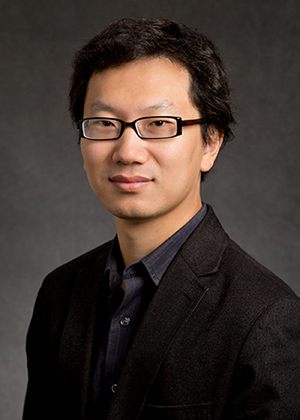
“Hiking on the Energy Landscape—All-atom Computational Understanding of the Universality of Long Timescale Phenomena and Rare Events in Non-Equilibrium Matter: Metal, Water, and Protein”
Abstract
The understanding of collective phenomena is one of the major intellectual challenges in many research fields. Conventional statistical methods have been successfully applied to describe systems at or near equilibrium, but they often fail to provide accurate predictions for systems and processes away from equilibrium, where time reversal symmetry and ergodicity are readily broken. Yet, patterns of amazing complexity spanning an immense range of hierarchical spatial and temporal scales—ubiquitous in the world around us— are formed from non-equilibrium conditions, such as turbulent flow, structure of the universe, social activities, and life itself. Research on such systems and processes may help identify the rule of randomness and recognize the role of correlated degrees of freedom in the organization and transport of energy and matter. Such quest for universality is motivated by a hope of identifying emergent principles governing non-equilibrium systems.
In the last few years, we have developed an all-atom metadynamics method, which allows intelligently sampling statistically rare events in complex materials, and a Relaxation-Excitation Mode Analysis (REMA) theoretical framework, which links the computationally sampled statistics of the energy landscape to experimentally measurable two-point correlation functions. This synergistically integrated experimental and computational approach opened the way for qualitatively examining a range of non-equilibrium matter and the associated complex processes that occur over a very long timescale, such as the viscous flow of supercooled liquids and glasses, nucleation and crystal growth, the folding of polypeptide chains into structured proteins, the self-assembly of micro-units into functional objects, and aging and degradation of materials. In this talk, first I will show the intriguing energy landscape characteristics of three apparently-different systems: glass-forming metallic liquids, water, and protein; then, I will describe our quantitative investigations of how confinement blocks the transition pathways on the energy landscape of proteins and thus prevents their thermal unfolding/denaturation.
Biography
Yang Zhang is an assistant professor of nuclear, plasma, and radiological engineering and also is affiliated with the Department of Materials Science and Engineering, the Program of Computational Science and Engineering, and the Center for Biophysics and Quantitative Biology. He is the group leader for Beckman’s Computational Molecular Science Group in the Molecular & Electronic Nanostructures research theme.
Zhang earned a B.S. in electrical science and technology from University of Science and Technology of China in 2004, and a Ph.D. in nuclear science and engineering from Massachusetts Institute of Technology in 2010.
He then worked at Oak Ridge National Laboratory as the recipient of the Clifford G. Shull Fellowship from 2010 to 2012. In fall 2012, he joined the faculty of Department of Nuclear, Plasma, and Radiological Engineering at Illinois, with affiliate appointments from the Department of Materials Science and Engineering, Program of Computational Science and Engineering, and the Center for Biophysics and Quantitative Biology. He also is a core faculty member and group leader of the Computational Molecular Science group at the Beckman Institute.
His research focuses on the study of extreme/non-equilibrium properties of liquids and liquid-like matter using synergistically integrated theory-driven atomistic simulations and neutron and X-ray experimental probes. The goal is to understand long timescale phenomena and rare events in matter and engineer them into transformative applications. He has been recognized with several awards including, most recently, the American Nuclear Society Landis Young Member Engineering Achievement Award. He is an associate editor of Science and Technology of Advanced Materials. In his spare time, he enjoys making soft robots.